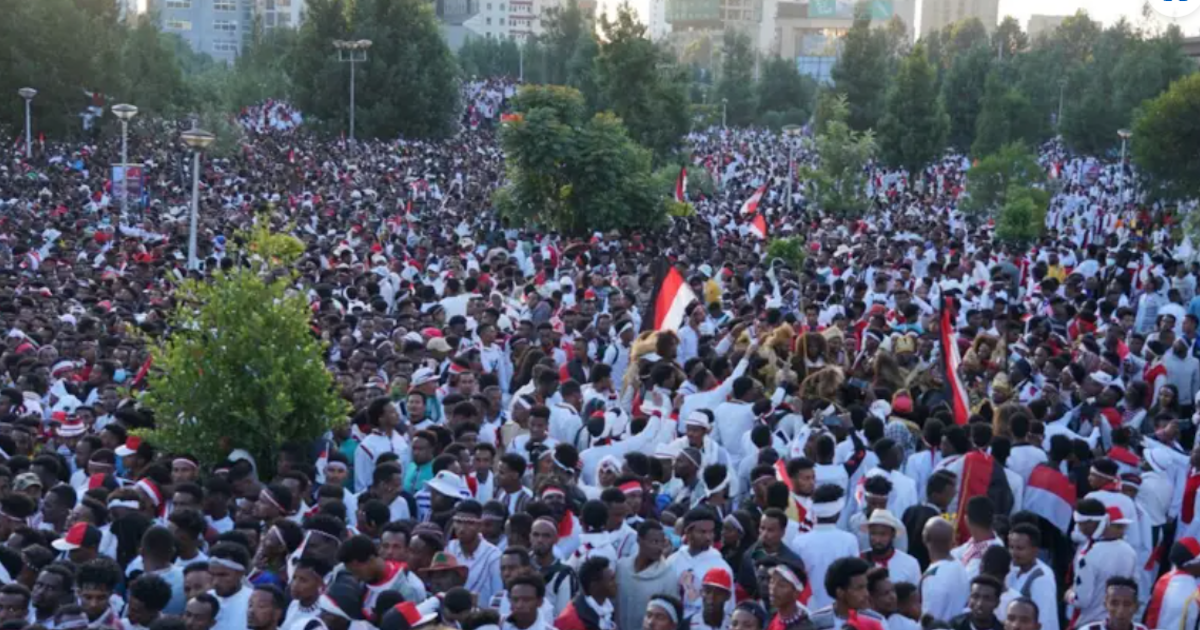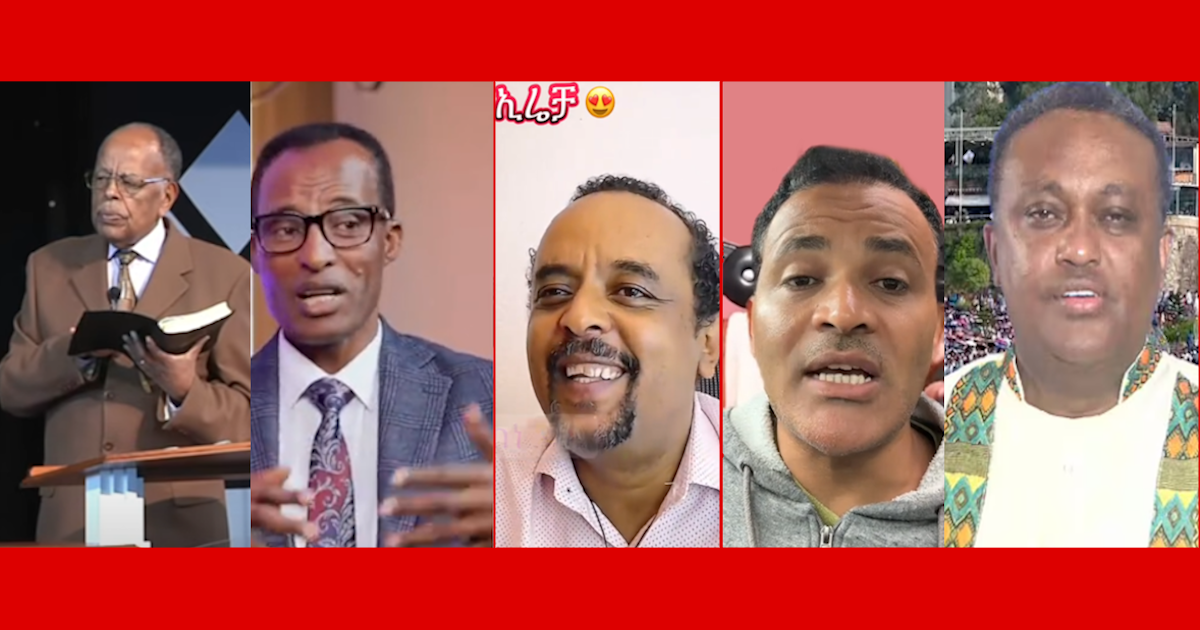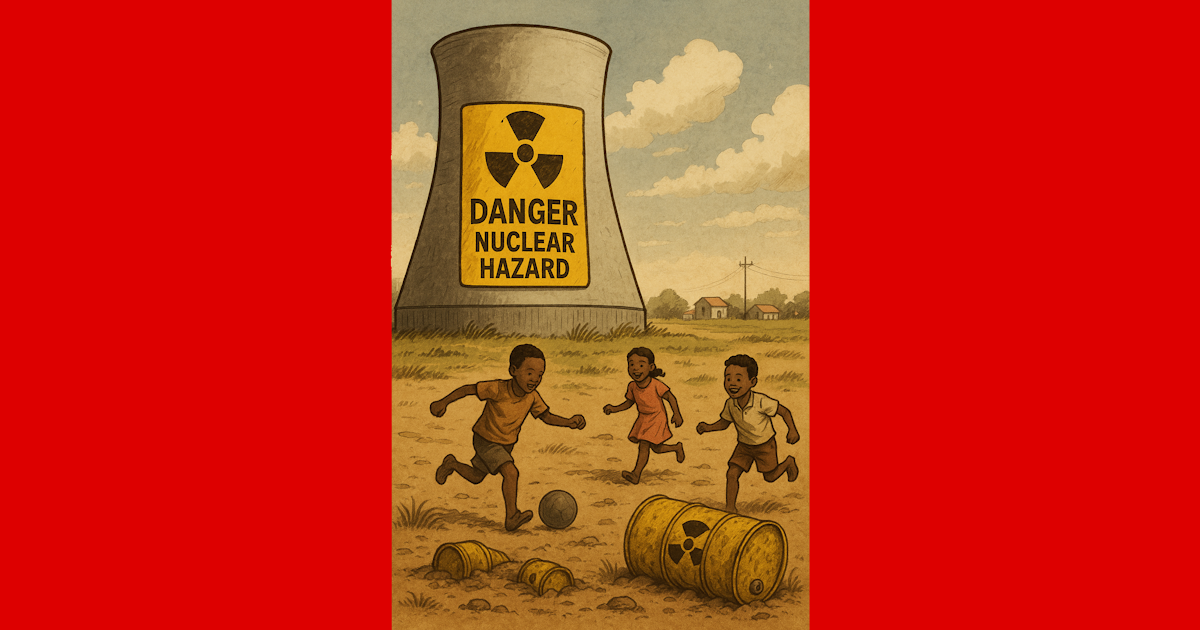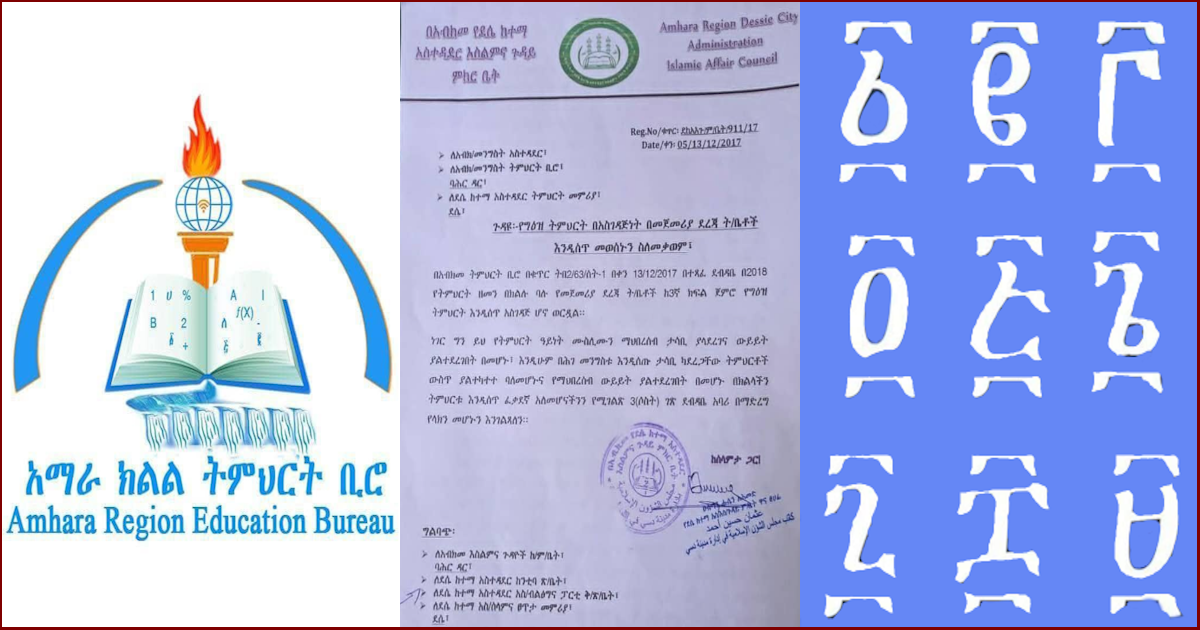The Death of Federalism by Agenda Ethiopia's Drift Toward Imperial Revivalism
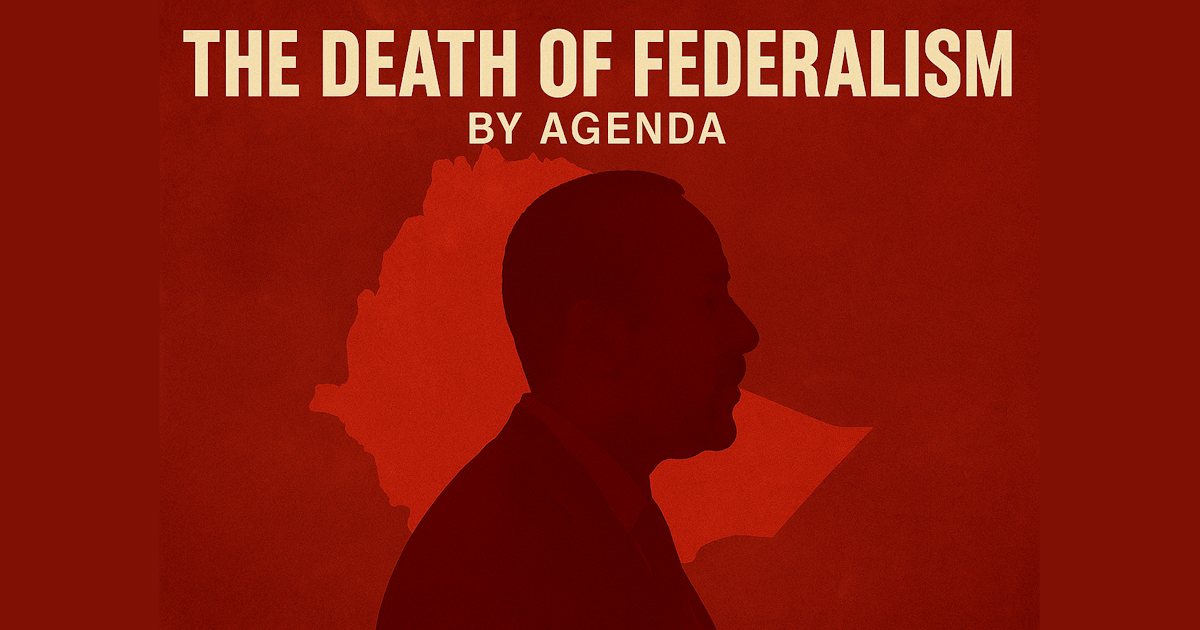
Excerpt
Federalism in Ethiopia is under existential threat. What was once a constitutional promise of self-rule and cultural dignity is now to be dismantled under the guise of reform. The regime’s recent agenda, advanced through a highly questionable Commission, signals a retreat to imperial centralism. This is not just a political maneuver—it is a fundamental negation of the federalism millions fought for and continue to defend.
Introduction: When “Dialogue” Becomes a Weapon
The recent submission of agendas by the Ethiopian federal regime to the Ethiopian National Dialogue Commission (ENDC) [1] marks a pivotal moment in the empire’s political trajectory. While disguised under the language of consensus and reform, these proposals, particularly the push to restructure the empire state based on geography (territorial polity model) rather than existing language based identity, represent a calculated assault on the very foundation of Ethiopia’s Multinational Federalism.
What is being advertised as an inclusive dialogue is, in fact, a silent coup against the self-rule aspirations of Ethiopia’s diverse nations, nationalities, and peoples.
Even more concerning is the questionable legitimacy of the ENDC itself. Established unilaterally by the very regime it claims to interrogate, the Commission lacks broad-based credibility, having excluded key political, civic, and resistance groups—especially from Oromia and other historically marginalized regions [2].
This makes the entire process doubly illegitimate: both in content—the anti-federal agenda, and in process—the exclusionary platform pushing it.
This article draws upon recent coverage and commentary from OROMIA TODAY and other civic publications to dissect the implications of this agenda and situate it within Ethiopia’s longer struggle between centralist imperial nostalgia and modern federalism.
1. Geography vs. Language: The Core Assault on Federalism
Among the four key agendas presented by government representatives to the ENDC is the proposal to redefine regional structures based on geography instead of language.
This is not merely administrative restructuring; it is a full-blown ideological inversion of the federal order introduced in 1995.
That Constitution was borne of decades-long struggles by oppressed groups—notably the Oromo, Somali, Tigray, Sidama, and others—for recognition, self-rule, and equitable representation.
This move would erase the federal units established by linguistic and cultural identity, effectively re-imposing a unitary state under a geographic facade. It harks back to the imperial era, when ethnic plurality was negated in favor of territorial control.
Regarding the agendas aimed at killing off federalism, here are some astonishing points worth noting:
- Reform is generally understood to be an incremental process of improvement. The regime’s agenda is none of this. It feels like a random imposition out of the blue—an agenda without a mandate.
- No popular outcry or democratic demand ever called for the rescinding of federalism. On the face of it, this agenda appears to serve only the interests of neo-imperial elites and historical centralists. These include Amhara-based parties and anti-Oromo actors like EZEMA, who consistently portray federalism as an “ethnic ill” corrupting what they nostalgically refer the Empire state as “the country.” Yet, as will become evident, this narrative also aligns with and is reinforced by Abiy Ahmed’s own prophetic discourse and vision of a reimagined Ethiopia.
- The procedural audacity is stunning. The regime behaves as if it can nullify the 1995 Constitution through mere agenda proposals. How reckless and absurd can it get? Is this “governance” or a form of autocracy on steroids?
- Despite repeated public reassurances—often directly from the Prime Minister and the Commissioners themselves—that “federalism is safe,” these statements now ring hollow. The very need for such frequent reassurance revealed a lurking fear. So the question remains: If federalism was never under threat, how did an ‘anti-federalism agenda‘ suddenly materialize from thin air?
A geography-based restructuring would have profoundly damaging consequences for Oromia, precisely because of its vast territorial footprint. Just as in the imperial past, Biyya Oromo was deliberately carved into over half a dozen territorial units—an engineered partition designed to fracture Oromo unity.
If implemented, it would not merely repeat history for the Oromo—it would rehearse it with chilling precision.
2. The Myth of Consensus: Dialogue as Democratic Theater
The ENDC was ostensibly created to foster unity and resolve deep-seated political fractures [3,4]. However, the nature of the regime’s submitted agenda belies this intent. It appears that the “dialogue” is being orchestrated to legitimize decisions already made by the regime. The involvement of selected federal stakeholders and associations—many closely aligned with the ruling Prosperity Party—further casts doubt on the participatory credibility of the process.
Multiple OROMIA TODAY commentaries [2] have raised concerns that Oromo voices, particularly from opposition parties and civic groups, are either excluded or tokenized in these forums. The very notion of “inclusivity” is undermined by how selectively participants are chosen and how the discourse is framed.
3. Security, Resources, and the Flag: Symbols of Central Control
Additional government agenda items include appointing security leaders based on “qualification” rather than political alignment, redefining land and resource use, and reestablishing the symbolic purpose of the national flag. These all signal a broader agenda to re-centralize authority:
- “Qualification” in security leadership may be a veiled effort to undermine regional security forces (e.g., Oromia Police) and bring them under federal command.
- Land and natural resources, which have long been a flashpoint in regions like Oromia and Benishangul-Gumuz, risk being declared national assets, curtailing regional sovereignty, though never been observed in practice.
- The flag, long contested in post-imperial Ethiopia, is again at the center of a push to unify the country under a singular nationalist narrative that disregards ethnic identity.
These priorities reflect a broader ideological move to hollow out federal autonomy while preserving the facade of unity.
4. The Cult of the Seventh King: Abiy Ahmed’s Imperial Longing
Perhaps the most unsettling dimension of this political realignment is its apparent inspiration from Prime Minister Abiy Ahmed’s own self-styled prophetic role. According to numerous reports and first-hand accounts, Abiy Ahmed has privately and publicly referenced a childhood prophecy from his mother that he would become the “seventh king of Ethiopia.” Initially dismissed as rhetorical flair, the claim now appears to shape much of his political vision—whether framed as the more politically acceptable pursuit of long-term presidency of a unitary Ethiopia.
This messianic narrative fits disturbingly well with the shift toward a centralist Ethiopia, echoing the autocratic legacies of Haile Selassie and Menelik II. The danger lies not just in delusions of grandeur, but in the use of state institutions to manifest those delusions as policy.
As OROMIA TODAY writers have observed, Abiy’s so-called reforms often camouflage a deeper mission: the restoration of imperial unity and the suppression of sub-national autonomy.
5. Constitutional Confiscation: From Rights to Rhetoric
Article 39 of the Ethiopian Constitution grants “nations, nationalities, and peoples” the right to self-determination up to secession. This was a revolutionary departure from Ethiopia’s imperial past. The current regime aims to undermine that right by reshaping public discourse around it and weakening the institutions that protect it.
This shift amounts to constitutional confiscation. The rights that were once guaranteed are being reframed as negotiable. The narrative of “reform” is used to usher in regression.
6. Global Lessons: Language-Based Autonomies That Work
Across the globe, stable and inclusive governance has often been built not by ignoring diversity, but by respecting it—especially linguistic and cultural identities. Several multinational or multilingual states offer working models that stand in contrast to Ethiopia’s proposed regression:
- Belgium organizes its federalism around Dutch-, French-, and German-speaking communities, preserving balance through deeply decentralized institutions.
- Spain grants robust autonomy to Catalonia and the Basque Country, recognizing their unique languages and national identities.
- Switzerland functions as a multilingual confederation, with cantons enjoying deep autonomy, including language choice.
- Italy recognizes regions like South Tyrol and Aosta Valley for their linguistic and ethnic uniqueness, giving them special autonomous status.
- Even the UK, though not federal, devolves power based on national identity to Scotland, Wales, and Northern Ireland.
These cases highlight a fundamental truth: linguistic and cultural autonomy is not a threat to unity, but often the condition for sustaining it.
Ethiopia’s own federal experiment, though imperfect, drew inspiration from these very global principles. The current agenda to reverse it not only betrays the domestic constitutional order but runs counter to proven models of coexistence.
Conclusion: The Crisis Ahead
What lies ahead is not just a legal or administrative dispute, but a confrontation between two visions of Ethiopia:
- One rooted in its diverse peoples’ aspirations for self-governance and cultural dignity.
- The other, a centralist resurrection driven by nostalgia, authoritarian impulse, and prophetic self-mythology.
The death of federalism may not be announced by tanks or decrees, but by agendas dressed in diplomatic language and passed through elite-dominated commissions. It is a death by design.
And it is doubly illegitimate. Illegitimate because of the undemocratic content it seeks to institutionalize, and illegitimate because the process is spearheaded by a commission lacking moral and democratic credibility [2].
Those who believe in a democratic, inclusive, and plural Ethiopia must recognize this moment for what it is: not a dialogue, but a decisive battle over the soul of the state.
To the National Dialogue Commissioners:
Given where we now stand, it is difficult to imagine that the Commissioners, at the outset, fully grasped the extent to which their platform would be instrumentalized to advance the regime’s anti-federalist agenda. Perhaps they accepted the role in good faith, believing it a civic duty in service of the state. But if the direction this process has taken diverges from the mandate they envisioned—if it was never their intention for “dialogue” to become a weapon against federalism—then we urge them to do the honorable thing: resign.
Resign, before history records your silence as complicity in the Death of Federalism by Agenda.
To the Oppressed Nations, Nationalities, and Peoples:
Most crucially, we call upon the oppressed nations, nationalities, and peoples of this Empire to rise in one voice and say: no return to the centralism of the imperial or Derg eras.
Those were eras that erased identities—linguistic, cultural, and communal—in the name of forced unity.
Multinational Federalism, as it currently exists, is far from perfect—largely because it has never been allowed to evolve as it was meant to. But it remains the only model that recognizes Ethiopia’s rich mosaic of peoples—as global experiences attest. It is the only path forward—whether through a functioning federalism or an honest confederalism—that honors dignity, self-rule, and coexistence.
Let this be the line history remembers:
We Said NO to Regression, and YES to a Future Built on Consent—Not Conquest.
#EndAgendaPolitics #SaveFederalism #FederalismIsFreedom
References
-
-
- Ethiopian National Dialogue Commission, Ethiopia.
- Editorial, “To the Ethiopian National Dialogue Commission: You Are Wasting Your Time and Everyone Else’s“, 31 January 2025. OROMIA TODAY.
- Ethiopian National Dialogue Commission, Proclamation.
- Ethiopian National Dialogue Commission, Publications (ህትመቶች).
-

